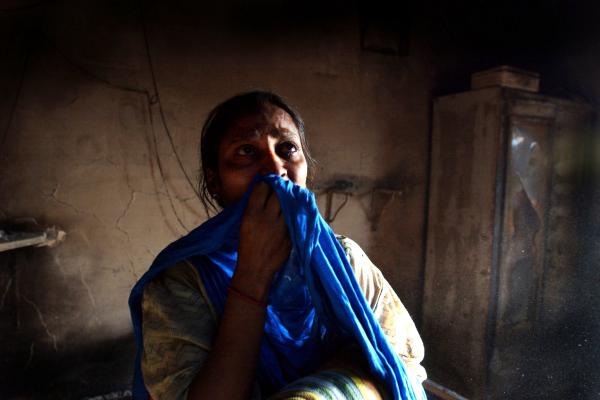For the next 12 days it’s all about the ground game. With most voter registration deadlines passed, the fight against voter suppression has shifted focus from registration drives to calling banks, car-pools, and calls to vote early.
Bishop Dwayne Royster is Executive Director of P.O.W.E.R. (Philadelphians Organized to Witness Empower and Rebuild), a 37-member interfaith organizing coalition in Philadelphia. Royster is also lead pastor of Living Waters United Church of Christ in Philadelphia. In a recent interview Bishop Royster explained just how vital the fight against voter suppression has been for the people of Philadelphia.
According to a study conducted by the Pew Charitable Trust’s Philadelphia Research Initiative, Philadelphia is the 6th poorest large city in America with a poverty rate that held at 25 percent in 2011. The unemployment rate is higher than the national average at 11.5 percent, and nearly half of all high school students engage in a fist fight at least once in the course of a year. Tensions are high in the City of Brotherly Love.
 There has been much speculation about “the nones,” the increasing number of people who do not identify with any particular religious denomination. The poll, conducted by the Pew Research Center, shows that nearly one-fifth of all Americans and nearly one-third of young people under 30 are unaffiliated with a particular religion or denomination. There have been varying reactions. As Mark Tooley points out, this isn’t necessarily a crisis of faith in America; many “nones” still profess to believe in God or some ultimate being. The rise of the “nones” could then be pointing to a crisis in denominational loyalty.
There has been much speculation about “the nones,” the increasing number of people who do not identify with any particular religious denomination. The poll, conducted by the Pew Research Center, shows that nearly one-fifth of all Americans and nearly one-third of young people under 30 are unaffiliated with a particular religion or denomination. There have been varying reactions. As Mark Tooley points out, this isn’t necessarily a crisis of faith in America; many “nones” still profess to believe in God or some ultimate being. The rise of the “nones” could then be pointing to a crisis in denominational loyalty.
There are also those who wish to eschew the label of religious all together, seeing it as increasingly connected to political conservatism, homophobia, and sexism (according to the poll, a “none” is more likely to vote Democratic and affirm the legalization of abortion and same-sex marriage).
In one of an ongoing series of blog posts entitled “Meet the Nones," Alyssa Bain writes, “I am more and more hesitant to label myself Christian as I see traditional denominations come to the spotlight for being closely affiliated with so-called right-wing politics. Instead, I distance myself.”
I write today to add my two cents. The truth is for most of my life I was a “none." I’ve only been a professing Christian for a very short time and I was not raised in any particular religious tradition at all. Though I identify as Eastern Orthodox and have been going to Orthodox services for over a year now as a catechumen, I have not been formally received into the church and still await my baptism and chrismation (I have never been baptized in any denomination, even as an infant).
When the United States dropped atomic bombs on the Japanese cities of Hiroshima and Nagasaki in 1945, the world was ushered into a period of weapons paranoia. The Cold War, of course, was hallmarked by the obsessive weapons one-upmanship of the United States and the Soviet Union.
Who, then, would have thought that in the 21st century, the seeming weapon of choice would not be some sort of super-nuclear missile or an ultra-deadly biological toxin, but that it would, instead, be women?
“Women are being used as weapons of terror,” Dr. Rubina Greenwood told an audience last week at a congressional briefing on the rights of minority women in Pakistan organized by the Hindu American Foundation.
 Monday night, I hit a new low. During the last presidential debate, I found myself arguing via Facebook about faith and politics … with a fellow pastor’s wife. Let’s just say, I managed to break each of Eugene Cho’s 10 commandments with my snark.
Monday night, I hit a new low. During the last presidential debate, I found myself arguing via Facebook about faith and politics … with a fellow pastor’s wife. Let’s just say, I managed to break each of Eugene Cho’s 10 commandments with my snark.
She who shall not be named suggested that anyone willing to support a certain candidate must be blind, stupid, or foolish. When I made it clear that I have prayed and reviewed the facts and would be supporting said candidate, I was told that my “prayers must not be backed by the Word of God.” I was then lambasted for my so-called "unbiblical" views. Oh, no she didn’t!
Aside from feeling personally attacked, I was more frustrated that this kind of bad theology remains in the church. It’s no wonder that more and more people of faith are identifying as the “nones”— or none of the above when it comes to religious beliefs. Who wants to be associated with Christianity — Protestant, Evangelical, Catholic, Orthodox, etc. — and the Church when they are often dominated by such judgmental people who dare to speak for God?
Videochat karaoke, dogs underwater, an Internet college sweatshirt, and "Emergency Compliment" posters. The Internet is full of awesomeness.
 Don’t ever kill me, OK? Killing me is not safe.
Don’t ever kill me, OK? Killing me is not safe.
—Mattias, 3 years, 0 months
“What’s your greatest fear about having another baby?”
I don’t think Amy was just goading me when she asked me this back in the early stages of impending double fatherhood, but she knows we’re both pretty good worriers (though I’d argue she’s better at it than I am, and since I’m the one writing this book, we’ll assume she’d agree with me).
Talk about an open invitation to worry! I don’t spend a lot of energy worrying about day-to-day matters; I’m more of a saver. But when something comes along that’s really worth worrying about, you can bet I’ll draw down that worry account a bit.
After Amy asked me the fateful question, I started compiling a mental list. I figure I’ll lay out at least my top ten here for your edification, or at least for simple amusement:
#10. We could have twins...
If I were given one word to describe New Zealand singer-songwriter Kimbra, probably best known for singing the female part on Gotye’s “Somebody That I Used to Know,” it would be eccentric.
But that word is based almost entirely on her live show, where — after dimming the lights and playing the theme for The Godfather over the 9:30 Club’s speakers on Tuesday — Kimbra walked onto the stage, decked out in sleek elevator shoes, a fluffy dress laden with glitter and color (which eventually became a tutu), and what looked like pom poms draped over her shoulders. She would’ve looked even more out of place if her drummer wasn’t rocking a sweet high top fade.
But, even though concerts are performances — and as such necessitate an element of spectacle — the music obviously remains the reason people flock to see their favorite musicians.
NAIROBI, Kenya -- Church leaders are pressing the Kenyan government to scientifically test herbal medicines that are used by millions to manage and treat diseases, saying the nontraditional therapies could be putting patients' health at risk.
The leaders say HIV/AIDS patients and others suffering chronic conditions are widely using the medicines, whose efficacy is unknown.







